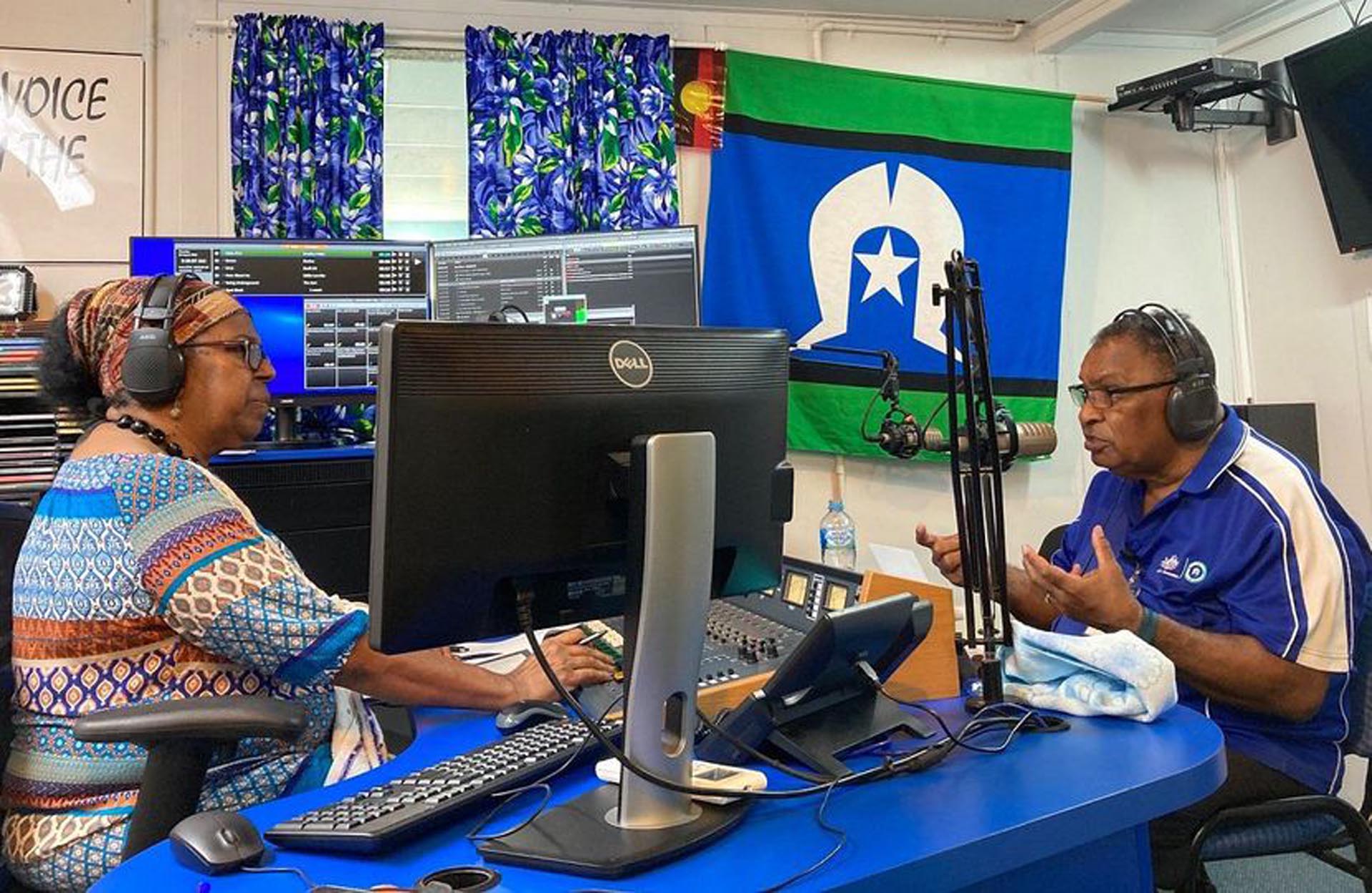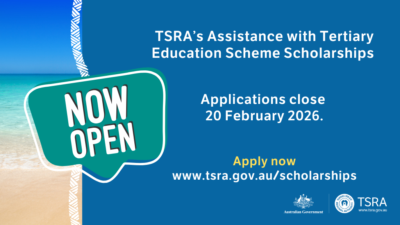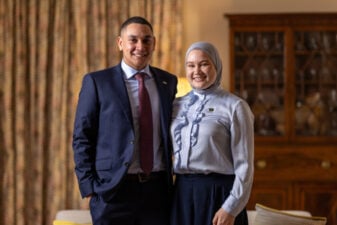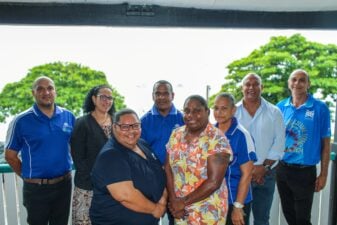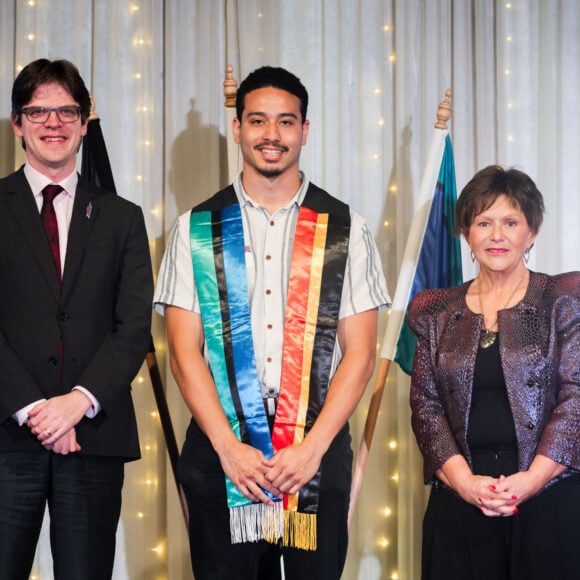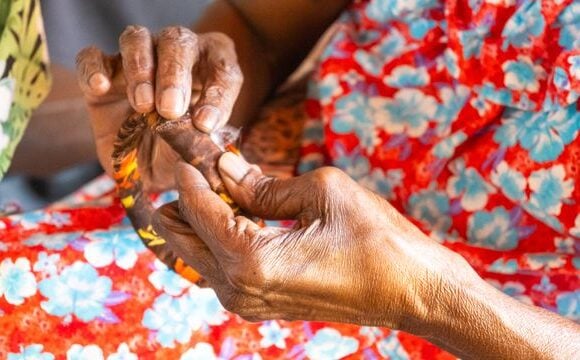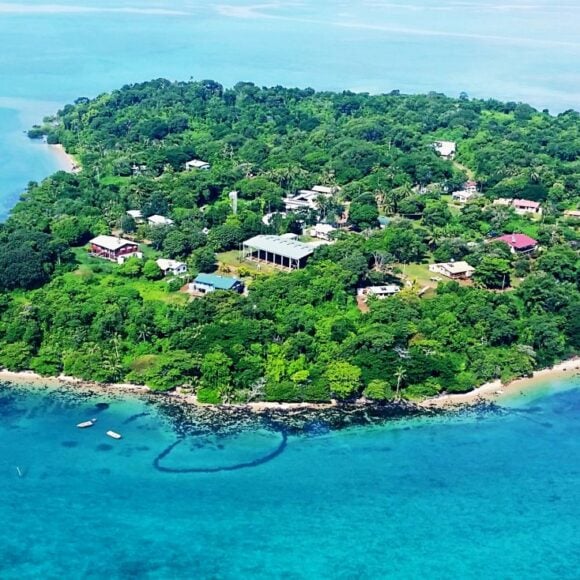Program overview
Effective and transparent governance, while promoting strong leadership in the region.
- for Tagai State College – Secondary Campus Growing our Own project
- $k
- local leadership investment with Australian Rural Leadership Foundation
- $k
- students and staff from Our Lady of Sacred Heart school sponsored on development camp in Far North Queensland
Initiatives
-
Managing the TSRA’s internal structures, including secretariat support for the TSRA Board, Audit Committee and Program Steering Committee.
-
Assisting the TSRA Board, CEO and Program Areas to engage with communities across the region.
-
Ensuring regular communication with Australian, state and local government representatives.
-
Creating regional leadership capability through targeted leadership development opportunities.
-
Supporting effective regional media and communication initiatives, including capacity building in communities.
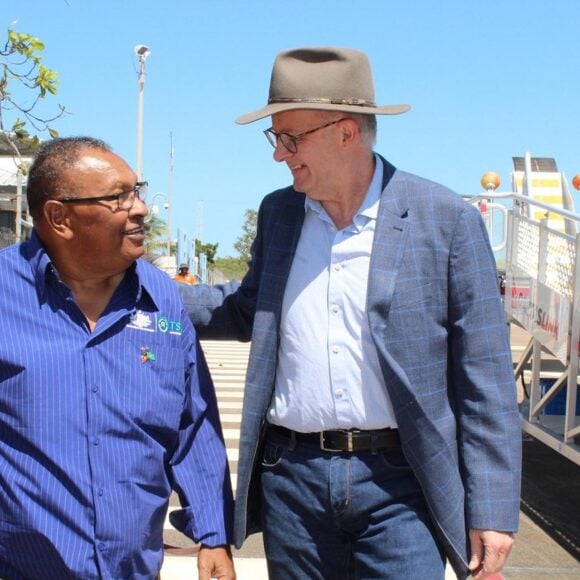
Key activities
- Board support
-
We provide administrative and logistic support to the TSRA Board.
The TSRA Board comprises 20 elected leaders representing all Torres Strait Islander and Aboriginal communities in the Torres Strait and the Bamaga and Seisia Communities in the Northern Peninsula Area. The election of the TSRA Board is overseen by an Australian Electoral Commission process.
The TSRA Board is a key advisory body, providing input across local, regional, statewide, national and international levels, including as part of the Torres Strait Treaty agreement between Australian and Papua New Guinea (PNG) to protect the traditional way of life and livelihood of local people and communities and explore future aspirations.
- Leadership programs and scholarships
-
We support and sponsor local people, including women and young people, to build leadership and development skills through programs including the Australian Rural Leadership Program (ARLP) and TSRA’s Assistance with Tertiary Education Scheme (ATES).
Contact 07 4069 0700 or info@tsra.gov.au for enquiries or more information.
- Assistance with Tertiary Education Scheme (ATES) Scholarships
-
- For Torres Strait Islander and Aboriginal residents from the region, who are undertaking full-time study to complete their first bachelor’s degree.
- People of any age may apply, during any year of their first undergraduate qualification, provided they are studying full-time at a Table A University. Eligible study modes include on university campus, externally, or via mixed-mode.
- TSRA ATES Scholarships offer up to $6,000* per annum ($3,000* per semester).
- *Scholarship payment amounts are made on a pro-rata basis depending on recipient’s enrolment type.
- Australian Rural Leadership Program
-
- A 15-month program offered by the Australian Rural Leadership Foundation for leaders from rural Australia who are committed to extending their knowledge, understanding and capabilities in order to be more effective and influential.
- We encourage Torres Strait Islanders and Aboriginal people in leadership or starting leadership roles to apply.
- Regional communications
-
The TSRA is the major sponsor for the Torres Strait Islanders Media Association (TSIMA) which operates Radio 4MW and is the Remote Indigenous Media Organisation (RIMO) for the region.
TSIMA also operates 5 Remote Indigenous Media Broadcasting Services (RIBS) stations in the region.


